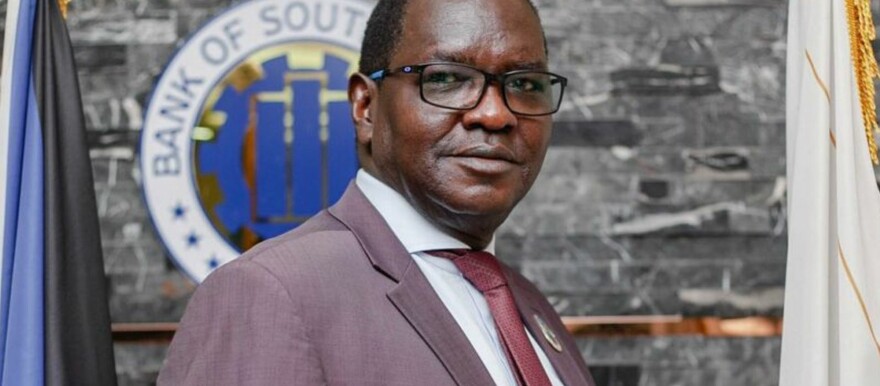The Transitional National Legislative Assembly (TNLA) on Monday passed and pushed the Banking and Other Financial Institutions Bill 2023 from the second to the third reading with all the recommendations and observations.
The Bill which was tabled in its second reading by the TNLA’s Committee for Finance and Economic Planning, Public Accounts Committee, and Legislation and Justice Committee seeks to strengthen the efficiency and independence of the Bank of South Sudan in regulating the banking sector.
Speaking during the parliamentary session on Monday, Bank of South Sudan (BOSS) Governor Jonny Ohisa Damian said amending the bill and changing its name from the Bank of South Sudan Act 2012 (Amendment) Bill, to the “Banking and Other Financial Institutions Bill 2023,” is very important because its function may now include other financial institutions in the country.
“Hon. Speaker, it is very important that we amend the name to the Banking and other Financial Institutions Bill 2023 because this will include other financial institutions,” he said. “This will incorporate other sectors that were not part of it like the microfinance entities that have been talked about a lot.”
“Some of the institutions that may be regulated by the law include insurance companies, Savings and Credit Cooperative Organizations (SACCOS), credit institutions, finance houses, mortgage and investment banks among others,” BOSS Governor Ohisa added.
He said the bill is vital because it can also regulate foreign reserves and exchange rates that have affected South Sudan.
Meanwhile, Clement Juma, an MP representing Tambura County in Western Equatoria State, said he hopes the bill will also regulate companies that transfer money.
“These days money transfer has become very digital and you have things like momo pay, MGurush, and other money transaction services which are not visibly covered by the law,” he said. “I hope this bill will cover these services because there is a risk that some of these services can sometimes be abused.”
Juma also recommended that the bill address the issue of black (parallel) market dollar exchange on the streets of Juba and the strengthening of the South Sudanese Pound so that it can be recognized in other neighboring and East African countries.
Meanwhile, some lawmakers expressed concern over the failure of commercial banks operating in South Sudan to pay their clients interest, saying it has caused mistrust between customers and bank operators.
Wol Deng Aleu, an SPLM MP from Warrap State, said the reason many people are keeping their money at home is because banks charge a lot of service fees.
“Hon. Speaker, some people keep their money in their houses because when you bank money, the banks charge you, when you withdraw money, they charge you,” he said. “What kind of system is this?”
Deng further suggested that the Banking and Other Financial Institutions Bill 2023 should be able to address the public’s concerns regarding exorbitant bank charges and build trust between commercial banks and their clientele.




